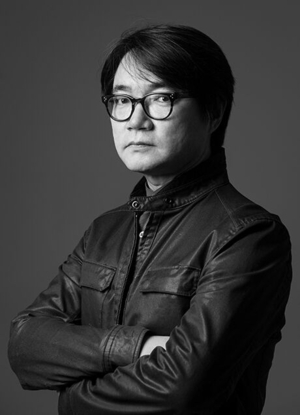
Composer and festival director Won Il sees traditional Korean music as key to defining K-pop’s identity
As K-pop continues its global expansion, questions about its long-term identity have grown louder. For Won Il, a composer and traditional musician, the answer may lie in Korea’s own musical heritage.
“I studied traditional Korean music and I am both a performer and a composer,” Won said during an interview with The Korea Herald on Monday.
His musical journey began in elementary school with the snare drum, continued through middle school clarinet in a school band and eventually led him to major in gugak, or Korean traditional music, composition in graduate school. With 45 years of experience across genres, Won brings a rare combination of traditional mastery and a cinematic imagination.
“I’ve always dreamed of being a film director, so my performances incorporate multimedia in a way that mixes Western music, film imagination and traditional music,” he explained.
Won’s career defies simple categorization. From traditional music stages to indie rock bands and festival direction, his path illustrates a restless curiosity.
“I get bored repeating what has already been learned,” he said. “True novelty is not somewhere far away — it can come from presenting familiar things differently. That is the essence of art and why I enjoy challenging myself.”
This philosophy underpins his thoughts on K-pop’s evolving sound. He pointed to Netflix’s recent animated film “KPop Demon Hunters,” whose opening theme incorporated pansori, or a traditional form of narrative singing.
“It may have been a small part, but it shows that Korean traditional energy is being recognized overseas,” Won said.
He highlighted how the film draws on the shamanistic roots of Korean women artists and visual motifs from folk paintings, creating a mythic energy central to Korean artistic identity.
“DNA-wise, it’s embedded in us. Our traditions, from shamanistic rituals to folk stories, reflect a long history of women leading artistic expression,” he said.
According to Won, these cultural elements are not mere nostalgia — they can inform K-pop’s next phase.
“K-pop has been Korean artists reinterpreting Western pop, hip-hop and rock in our own style. But now, it’s time for K-pop to develop a unique identity rooted in Korean music — its rhythms, instruments and forms,” he said.
He cited recent experiments in crossovers with traditional instruments.
“For example, Park Dawool in the group Kardi plays geomungo, a traditional zither, alongside guitars. The instrument can compete with the guitar in energy and presence,” Won said. He added that gayageum and traditional percussion, already featured in high-profile performances like the opening ceremony of PyeongChang 2018 Olympic Winter Games, showcase the dynamic energy that could define K-pop performances.
“Korean performers excel at fusing genres quickly and dynamically. That adaptability allows instruments like daegeum, geomungo and janggu to take center stage,” Won said.
For Won, the message is clear: As K-pop seeks its ultimate identity on the global stage, it must look inward.
“By embracing our traditional music and creatively integrating it, K-pop can become not just globally popular, but truly Korean in a way that resonates worldwide,” he said.
Looking ahead, Won is focused on his own creative path.
“My goal is to release an album, connect it with performance and ultimately create ensembles that bring this music to the public,” he said. “For me, the essence of music is performance. Albums are meaningful, but showing them live is where the excitement truly lies.”